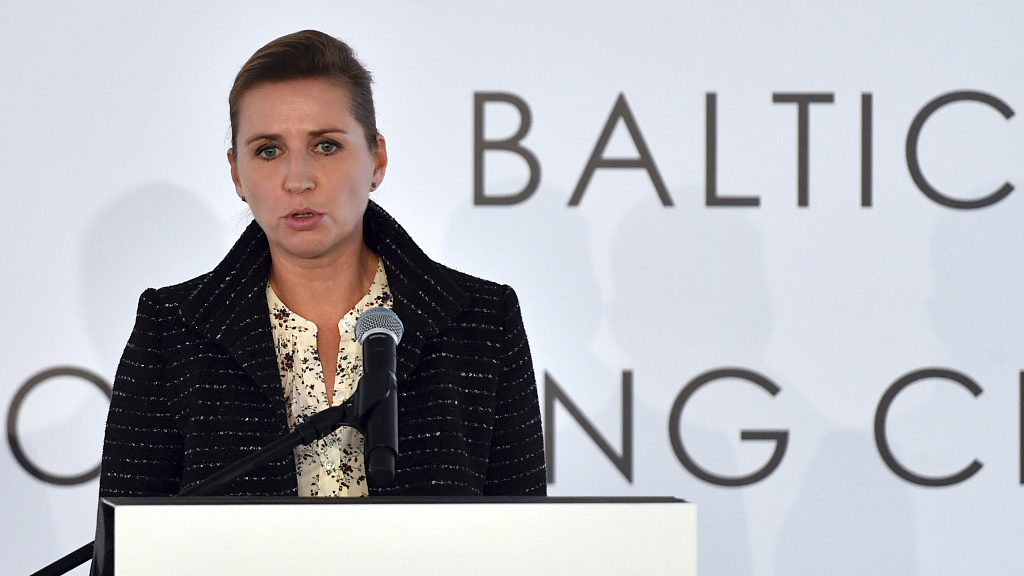
Danish Prime Minister Mette Frederiksen speaks during an opening ceremony of the Baltic Pipe in Budno, Poland, September 27, 2022. /CFP
Danish Prime Minister Mette Frederiksen speaks during an opening ceremony of the Baltic Pipe in Budno, Poland, September 27, 2022. /CFP
Danish Prime Minister Mette Frederiksen on Wednesday called a national election on November 1 to bypass a vote of no confidence against her administration by one of her allies.
Frederiksen, who leads a Social Democrat minority government, had faced a deadline of Tuesday to announce a vote, until the Social Liberals gave her an extra day.
The no-confidence motion stemmed from the harsh criticism of Frederiksen and the government due to an unprecedented culling of the country's 17 million minks, which was triggered by COVID-19 contamination fears and later turned out to be wrong and without a legal framework in place.
"I have today informed the queen that elections to the Folketing (parliament) will be held," the Social Democratic leader told a press conference.
"We want a broad government with parties on both sides of the political centre line," she noted.
Frederiksen, 44, became Denmark's youngest-ever prime minister in 2019 after promising to improve welfare services that had been eroded by liberal economic reforms since the beginning of the century.
In office since June 2019, Frederiksen had to call elections by June 2023, under the Danish system. But she had faced an ultimatum from a small party propping up her minority government demanding that she call elections before parliament's first debate on October 6.
Recent polls give the "red bloc" of several left-wing parties, led by the Social Democrats, between 47 and 50 percent of the vote, compared to 49 to 50 percent for the "blue bloc," which includes the Liberal Party, the Conservative Party and three nationalist right-wing parties.
In terms of seats, neither bloc has a majority in Denmark's parliament, without the support of overseas MPs from Greenland and the Faroe Islands.
(With input from agencies)